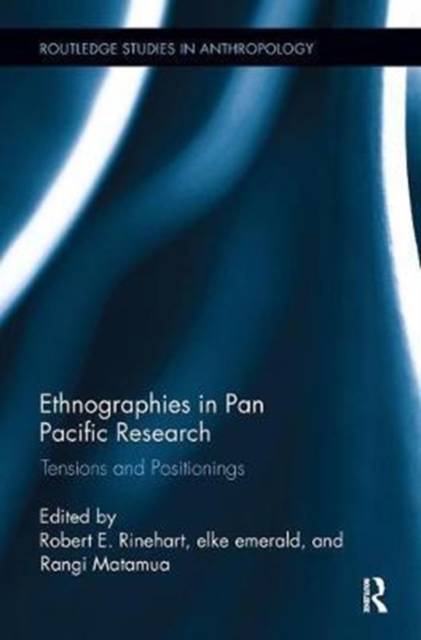
Bedankt voor het vertrouwen het afgelopen jaar! Om jou te bedanken bieden we GRATIS verzending (in België) aan op alles gedurende de hele maand januari.
- Afhalen na 1 uur in een winkel met voorraad
- In januari gratis thuislevering in België
- Ruim aanbod met 7 miljoen producten
Bedankt voor het vertrouwen het afgelopen jaar! Om jou te bedanken bieden we GRATIS verzending (in België) aan op alles gedurende de hele maand januari.
- Afhalen na 1 uur in een winkel met voorraad
- In januari gratis thuislevering in België
- Ruim aanbod met 7 miljoen producten
Zoeken
Ethnographies in Pan Pacific Research
Tensions and Positionings
€ 80,95
+ 161 punten
Omschrijving
The book is about exciting ethnographic happenings in the vibrant and growing global interface which includes Australia, New Zealand, and some of the Asian geographical regions, as well as - more broadly - the global South. It explores ethnographic writing as culture(s) (re)produced, positionalities of authors, tensions between authors and others, multi-faceted groups, and as co-productions of these works. The contributors describe and discuss a variety of topical areas of interest, from Facebook to memory work, from children's sexuality to urban racism, from meanings of Indigenous knowledge to how communities can come together to retain what is valuable to themselves. The authors also manage to locate themselves and others (positionings) in the research hierarchies (tensions). This is a valuable guide to the effects of 21st-century ethnography on the qualitative research project.
Specificaties
Betrokkenen
- Uitgeverij:
Inhoud
- Aantal bladzijden:
- 306
- Taal:
- Engels
- Reeks:
Eigenschappen
- Productcode (EAN):
- 9780815346678
- Verschijningsdatum:
- 18/12/2017
- Uitvoering:
- Paperback
- Formaat:
- Trade paperback (VS)
- Afmetingen:
- 152 mm x 229 mm
- Gewicht:
- 412 g

Alleen bij Standaard Boekhandel
+ 161 punten op je klantenkaart van Standaard Boekhandel
Beoordelingen
We publiceren alleen reviews die voldoen aan de voorwaarden voor reviews. Bekijk onze voorwaarden voor reviews.








